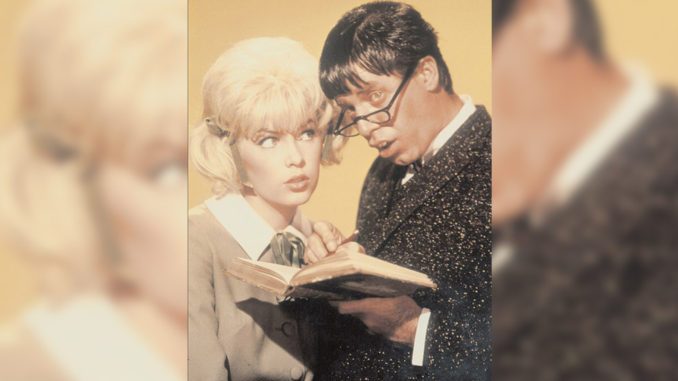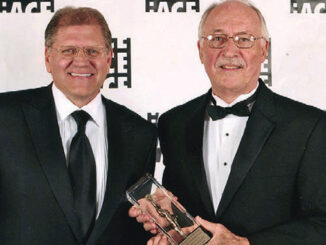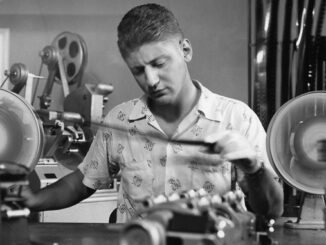
by David Bruskin
When asked to consider what movie made me want to get into “The Business,” I was surprised how quickly Jerry Lewis’ The Nutty Professor popped into my mind. The speed and quirkiness of the answer speaks to the enduring visceral and emotional power of movies on the psyche.
The Nutty Professor might seem to be a childish choice, but that’s partly because I fell in love with movies as a child, starting with comedies. (My first film was an 8mm fourth grade geography project in which I played Charlie Chaplin visiting Paraguay.) As my tastes expanded, my favorites fell into categories such as sentimental favorites, sinful pleasures and an eclectic array of favorite moments. Perhaps one reason The Nutty Professor made me want to get into the movie business is because it uniquely falls into all three of these categories. It also consistently elicits a profound emotional response in me.
Excluding France, the rest of the world either loves or hates Jerry Lewis. I was always a fan. As I grew old enough to perceive the huge differences between his screen and showbiz persona, I became curious about the dichotomies of his personality––perhaps because at some level I identified conflicting drives in myself. In The Nutty Professor, Lewis examines his contradictions by way of Professor Julius Kelp, who––in a Jekyll/Hyde turn––discovers a formula that brings out a hidden, obnoxious, yet compelling alter ego: the devastating lady killer named (with extemporaneous unwitting irony) Buddy Love.
Like many Lewis movies, The Nutty Professor contains moments that run a gamut from sublime (the first-person tracking shot leading up to our first look at Buddy Love) to hilarious (Kelp’s gloriously irrepressible, goofy dancing on the senior prom sidelines) to embarrassing (numerous overplayed gags and awkward pacing). The climactic revelation to the university community that Professor Kelp and Buddy Love are the same person occurs when Kelp, suddenly and unexpectedly unmasked, offers an apologetic, surprisingly moving monologue that sums up the movie’s theme of self-love while the crowd sobs for him.
That level of emotional identification spoke to me in a subliminal yet powerful way about the potential of movies.
This is a paradigmatic climax of a Lewis film––the abject humiliation of the Kid/Stooge followed by contrition and subsequent adoration by the masses. Apparently, Lewis’ vaudevillian father jealously withheld appreciation of his son’s stardom, which seems to indicate that the son spent much of his career trying to work out an insatiable need for acceptance and a quest for self-love. If this is so (and if the character of Buddy Love owes anything at all to Dean Martin, as some critics assert), then The Nutty Professor might be the quintessence of Jerry Lewis, the man and the performer, as far as the public can know him.
Lewis made his mark as an adult playing a kid, so it made sense that even as a child, I understood that The Nutty Professor was a revealing movie. Here was Jerry Lewis, whom I liked and who made me laugh, being dark and conflicted in a way I found surprisingly understandable. That level of emotional identification––not just with the character but also with the performer who’d created and executed a more personal vision than perhaps he realized––spoke to me in a subliminal yet powerful way about the potential of movies. They were fun and entertaining but they could also make you feel.
Beyond the crucial element of emotional identification, I was a ham who identified with Lewis the performer. I was a kid who was curious about how things worked, so I identified with Lewis the filmmaker. I wanted to be and do the things Jerry Lewis was and did. So when my mother, on a fateful day she must still rue, brought home a paperback book titled The Total Filmmaker by Jerry Lewis––a collection of edited transcripts from his filmmaking lectures at the USC School of Cinema––the fuse was lit. Before the decade was out, I was a human cannonball, hurtling west to Hollywood…





